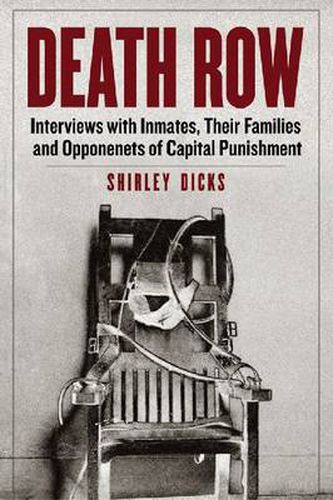Readings Newsletter
Become a Readings Member to make your shopping experience even easier.
Sign in or sign up for free!
You’re not far away from qualifying for FREE standard shipping within Australia
You’ve qualified for FREE standard shipping within Australia
The cart is loading…






This title is printed to order. This book may have been self-published. If so, we cannot guarantee the quality of the content. In the main most books will have gone through the editing process however some may not. We therefore suggest that you be aware of this before ordering this book. If in doubt check either the author or publisher’s details as we are unable to accept any returns unless they are faulty. Please contact us if you have any questions.
I don’t know when we will stop murdering people whether randomly on the streets or systematically in our death chambers. The only way to prevent continuation of the suffering and grief murder occasions in to prevent murder. I have worked with eighteen people who have been executed and five of those I’m convinced were innocent–the words of Joe Ingle, said to be a 1988 Nobel Peace Prize nominee, from Part I (which looks at those who are involved with the fight against the death sentence).
The guy I am convicted of killing shot me three times before I fired at him, …When I look back on life and think about it, I wonder why those thirteen people can decide if I should die. …Society does not feel our pain, the horror of knowing the exact hour and day that they will set us in the chair and kill us –Mr. D., one of the 11 death row inmates interviewed in Part II. Part III interviews family members. This thought-provoking collection provides much insight on this controversial issue. The United States stand on the death penalty, in light of U.S. leadership in human rights, appears to be a contradiction to the rest of the world. The methods of execution are sometimes extremely painful and not quick. An overwhelming percentage of those on death row are impoverished and would not be there if they had other resources besides desultory and ineffective court-appointed counsel.These and other important issues are poignantly addressed.
$9.00 standard shipping within Australia
FREE standard shipping within Australia for orders over $100.00
Express & International shipping calculated at checkout
This title is printed to order. This book may have been self-published. If so, we cannot guarantee the quality of the content. In the main most books will have gone through the editing process however some may not. We therefore suggest that you be aware of this before ordering this book. If in doubt check either the author or publisher’s details as we are unable to accept any returns unless they are faulty. Please contact us if you have any questions.
I don’t know when we will stop murdering people whether randomly on the streets or systematically in our death chambers. The only way to prevent continuation of the suffering and grief murder occasions in to prevent murder. I have worked with eighteen people who have been executed and five of those I’m convinced were innocent–the words of Joe Ingle, said to be a 1988 Nobel Peace Prize nominee, from Part I (which looks at those who are involved with the fight against the death sentence).
The guy I am convicted of killing shot me three times before I fired at him, …When I look back on life and think about it, I wonder why those thirteen people can decide if I should die. …Society does not feel our pain, the horror of knowing the exact hour and day that they will set us in the chair and kill us –Mr. D., one of the 11 death row inmates interviewed in Part II. Part III interviews family members. This thought-provoking collection provides much insight on this controversial issue. The United States stand on the death penalty, in light of U.S. leadership in human rights, appears to be a contradiction to the rest of the world. The methods of execution are sometimes extremely painful and not quick. An overwhelming percentage of those on death row are impoverished and would not be there if they had other resources besides desultory and ineffective court-appointed counsel.These and other important issues are poignantly addressed.